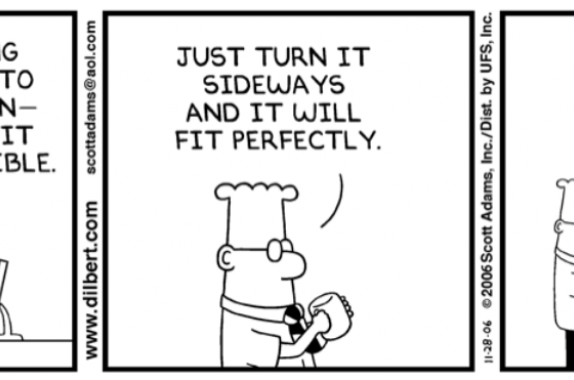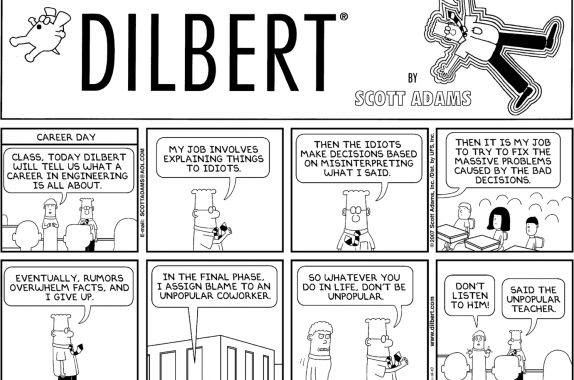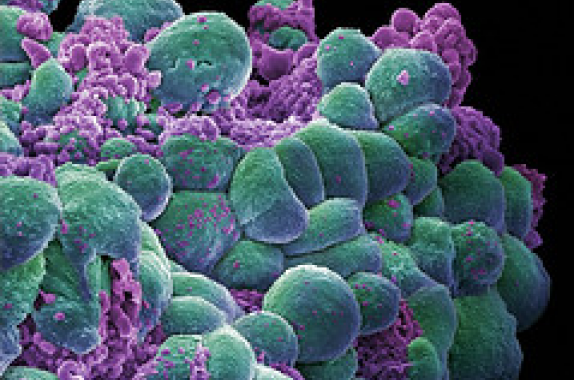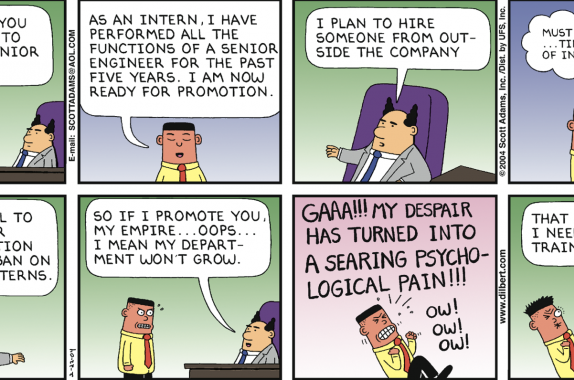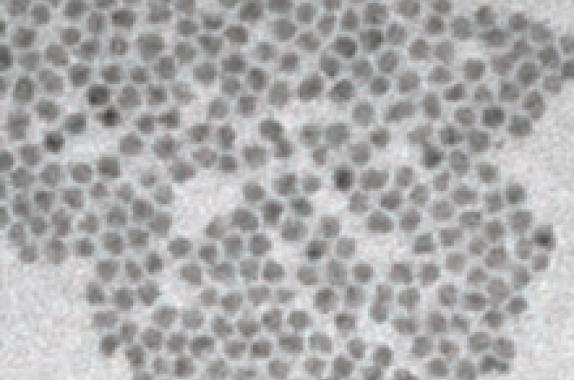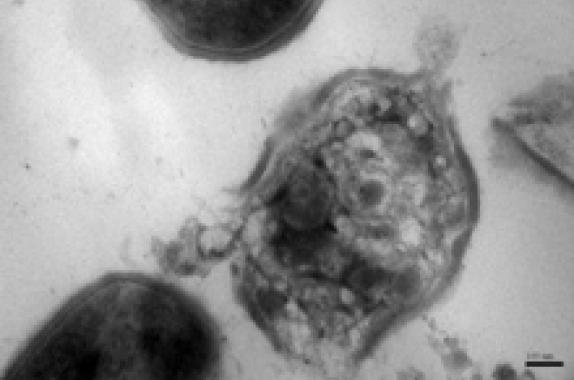Douglas B. Clark

Douglas Clark is a copywriter and speechwriter with a healthy appetite for all things digital. He has more than 15 years' agency and independent experience in corporate and marketing communication, and his clients come from diverse industries, specializing in anything from financial products and toothpaste to software for the visualization of computational fluid dynamics data. Among his clients are Accenture, American Express, Coca-Cola, Colgate-Palmolive, Hewlett-Packard, and Panasonic.
ChEnected contributions
Dilbert: Two Heads Are (Annoyingly) Better than One [Funny Bone]
Dilbert plays backseat engineer, to the great annoyance of his colleague.
Intel Announces 3D Breakthrough in Chip Design
Intel has announced new 3D technology that will allow the company to pack more transistors into small chips. You can have Mark Bohr of Intel walk you through the new technology in the educational video in the panel to the right.
Dilbert—Dilbert Tells Students What Engineering Is All About
Asked to explain at Career Day what engineers do, Dilbert takes a cynical approach—much to the annoyance of the teacher.
Ultracapacitor Technology Promises more Viable Electric Car
Not unlike the cell phone and laptop, the electric car has long been haunted by one question in particular: exactly how long until it's time to plug it in again? And the other big factor: cost. But one startup thinks it has the answer.
Chemical Engineers Design Nanoparticles to Target Cancer Tumors
Chemical engineers at MIT have designed a nanoparticle that could one day be used to target cancerous tumors, reports MIT News. The particle, which could be used to deliver drugs to tumors, takes advantage of the fact that tumors generally exhibit higher acidity that healthy tissue. Like other drug-delivering nanoparticles, the researchers' creation is covered in a polymer that keeps it from degrading in the bloodstream. These particles, however, drop their protective polymer cloak once exposed to the higher acidity of a tumor. Underneath the protective coating is another layer that can penetrate the tumor. The particles are described in detail in the journal ACS Nano.
Dilbert—The Intern Seeks Recognition and Promotion [Funny Bone]
Sometimes it seems like an intern just can't get ahead...especially with an empire-builder of a boss!
Scientists Unveil Interactive Atlas of Human Brain
The Seattle-based Allen Institute for Brain Science has unveiled a $55 million digital atlas of the human brain, according to a report in the Wall Street Journal. Available online to researchers, this interactive guide is the first tool to use computer technology to combine detailed anatomical information with findings with extensive genetic information.
Meet Nicole Rasmussen—Featured YP for April
Nicole Rasmussen is turning 26 this month and getting married in four. She graduated four years ago from the University of Arizona in Tucson, AZ.
Antibiotic-Resistant Bacteria Fought with Nanoparticles
IBM researchers are developing nanoparticles that kill bacteria by poking holes in them. The hope is that bacteria will be less successful at developing a resistance to these types of drug, leaving doctors with a powerful tool in the fight against antibiotic-resistant microbes.


